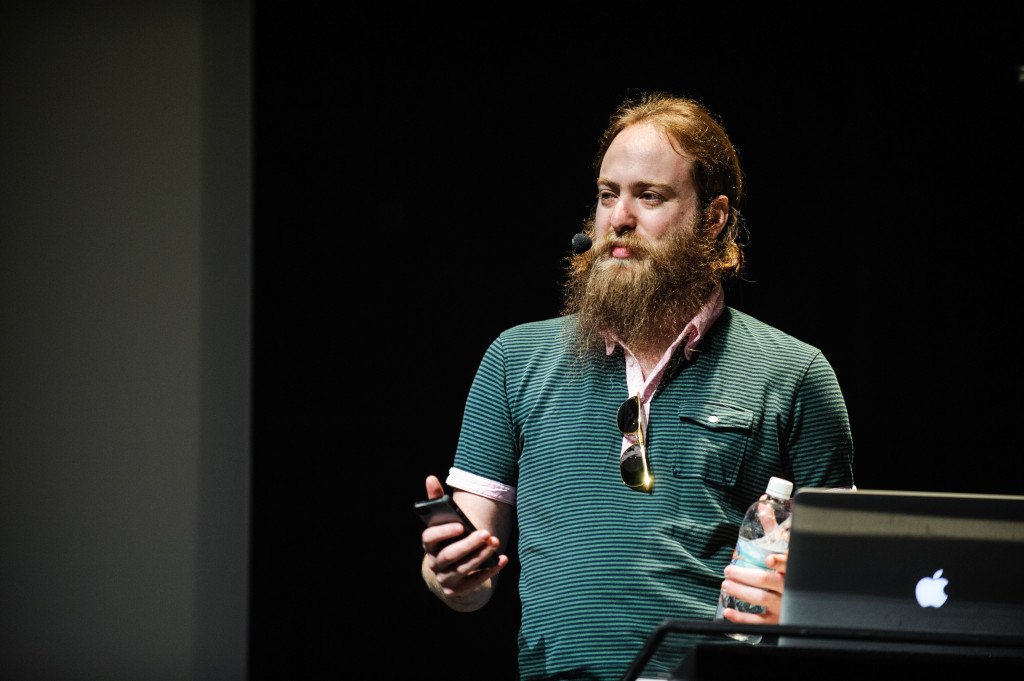
One of the most important things that Nick Suttner needs every game developer (indies especially) to understand is that it’s people — not companies but rather individual champions in different parts of the industry — that make games succeed.
A former journalist, as well as a Sony alum and erstwhile Oculus developer relations rep, now an independent writer and consultant, Suttner made this his key takeaway at a talk he gave at Game Connect Asia Pacific in October last year, and he emphasized it again when GameDaily.biz caught up with him recently.
“A lot of things that may have been common wisdom 10 years ago don’t work anymore, or even five years ago,” he said. “The medium has changed in a lot of ways, and the delivery methods have changed. And there’s more games than ever to compete with. That’s not something to take lightly.
“But at the same time, I think there’s also more money being invested in games than ever before. And there’s more indie publishers than ever before. There’s more interest in the industry, in that sense, than ever before. So I think in that way, it’s not harder, it’s just different. … And I think people have to still be optimistic about that — that there’s still money and success to be found.”
Suttner suggested that most indie failures of the past few years have not been portents of an “indiepocalypse,” but rather more run-of-the-mill underachievements. “That game might’ve been around, you know, on and off for five years, but it didn’t really have any sort of a launch push and people don’t know it’s actually out,” Suttner said.
“Or maybe this is an idea that looked awesome in a teaser seven years ago and they should have just wrapped up the game and put out a small version of it, then moved onto their next thing and captured that attention. But they spent like seven years adding this big epic story or something that nobody wanted.”
If you stop and think about it, you can probably trace the reasons an indie game didn’t succeed. There’s no such thing as a golden ticket any more. The early days of the indie resurgence, post-Braid, were a historical anomaly that benefited from a rare convergence of external factors (popular new platforms, cheap new distribution and development channels, changing consumption habits and consumer taste, and industry push-back against a decade of increasing consolidation) that no longer apply.
“Even going back to like [the original] Geometry Wars,” Suttner said, “where it’s like it was the one game everyone played every week, there just wasn’t as much coming out. And I think that’s sort of maybe set this expectation of like, oh, you know, indie games can reach these heights. But of course when you have thousands of developers thinking that way, that creates a very different congested pool.”
Suttner believes the key to surviving in this congested market is to court individual champions who can wield their influence to help cut through the noise. Not giant entities — not platform holders like Sony and Nintendo and Microsoft, nor publishers or storefronts or media organizations — but the actual people who work at these companies.
Every store, stage, or social media promotion through platform and publishing channels comes about because somebody cares about a game, Suttner explained. Likewise with any funding they might provide. And the indies that learn how to make and maintain those personal connections are the ones that thrive.
“It just becomes this sort of self-fulfilling cycle of opportunity,” Suttner said. “And I think that’s often why you see a lot of, like, the same games — the same indie games — get featured over and over by the different consoles and platforms. It’s because those devs are easy to work with and they, I think, have some understanding of how this works. They’re willing to go out of their way to accommodate the platform for these opportunities.”
It also takes an understanding of platform lifecycles — to accommodate ever-shifting priorities within companies. “Early in the PS4’s lifecycle there weren’t a ton of triple-A games coming out yet,” Suttner explained. “And so I think a lot of attention was paid to indies. I think that’s where a lot of the messaging around the system, or a lot of PR efforts go towards that. And I think that’s positive.”
“But now there’s other things in the cycle,” he continued, “like, I haven’t been at Sony for a couple of years, but I think it’s understandable when a new God of War comes out that the company is going to drop everything and do that to promote this game they spent untold amounts of money on.”
Work around these big tentpole releases and understand the needs of platforms and publishers, Suttner suggested, and indie developers can still find their champion and get their day in the sun — especially if their game has something special about it to make it stand out (either as something new and different or as a best-in-class genre piece with great art and a good twist).
“I think indies tend to be very like doom and gloom about it,” he said. “Like, oh no, what happened to Sony? We don’t see them like announcing big indie games on stage. Or why doesn’t Microsoft care about my game when they would have a couple of years ago? And I don’t know. There’s still people at all those platforms who still care about games and are still funding games. And I think it’s just about connecting with those people and — yeah, going back to finding your champion.”
It’s not merely a matter of networking, of course — a game still needs to be good, and to bring something new and/or better to the market. But Suttner believes it really does boil down to finding people with influence who will care enough to help a specific game succeed.
The alternative is to go it alone — to hope that grassroots marketing will be enough, or that a game will suddenly go viral. But Suttner doesn’t consider that a viable strategy for most developers. “You need someone whose name you know to care about your game,” he explained, “and who you can talk to, and, even if you don’t talk to them, someone that has your best interests in mind and cares about your game and thinks it’s good and wants to fight for it. And wants to bring it to more people.
“I think if you don’t have that, and it’s just pure word of mouth, like it really has to be lightning in a bottle, and that’s something that you can’t plan for or predict.”
Suttner argued that having a launch plan is the most important thing any game developer can do. “If you’re a certain type of developer and making a certain type of game, I think it totally can be viable [even] if your plan is like, ‘I’m going to release this thing only on my website and make people come to me and buy,’ he said. “Like, it sounds a little crazy, but the problem is people wait until the game’s like two months out and they’re like, ‘all right, now how are we going to launch this thing?’ Whereas I think actually even selling it in your own crazy tiny walled garden is better if you’re thinking about that from the start, so you can plan for that and market for that. Having that plan is the important part.”

There are more options available to indie developers now than in recent years, with new high-profile PC storefronts Discord and Epic Game Store looking to shake-up the PC games market while virtual reality matures and the console makers begin to split their attention between late-cycle releases for their current systems and preparations for the launch of their next-generation systems. And that’s just at a platform level — there are also various indie funds and specialized/boutique indie publishers, plus indie labels at major publishers, all looking to pick up games that a few years ago might have had no other choice but to self-publish.
Suttner imagines that this trend of shifting platform and publishing landscapes will continue for some time. New storefronts, cloud gaming, and VR all have the potential to transform the market, he noted, but it’s hard to predict which ones will break out and thrive. In the meantime, he added, player inputs and game delivery methods don’t look like they’ll change drastically for a while, “and that means you have sort of a baseline to build a game from.”
“And so I think people just really need to focus on like making the game that excites them, personally,” he continued, later clarifying that developers should aim to make their game either new and different or best-in-class for its genre, “because there’s probably other people who will be excited about it too.”
Then once you’ve done that, you can ratchet up the excitement — both with fans and any potential champions — with a well-communicated, clear vision. “I think it’s really like setting the context for who you are and why you are making what you’re making,” Suttner said. “That’s all really important. And that’s what sort of helps you stand out from the crowd.”
Suttner is adamant that there’s still plenty of room for indie studios that do all this to succeed and to establish sustainable businesses. “I think there’s also people spending more money on games,” he said. “People [who are] funding more games than ever. So it’s about connecting with the right people.”
Already-successful indies can be a big help here, he added, even if only in a hands-off manner whereby they contribute their knowledge and experience to the wider conversation — which is not necessarily something he sees them actively doing. “Just over the last 10 years, I think, or maybe a little longer now, a lot of successful indies,” he said, “sort of maybe the go-to ones you would think of — I think a lot of them have withdrawn a little bit, and some of them have had the luxury to withdraw, because when you have a big hit you can sort of take your time and figure out what’s next.
“I think a lot of time people just sort of turn inward and they focus on their next thing. And that’s important too. That’s how we get great games. But I think it also is a shame when some people sort of withdraw from the community.”
More than that, even, it falls on the industry itself to decide what its future will be, and what indie games will rise to the top of the pile. Fans, journalists, and members of the industry can all do much more to help give good games a boost. “I think just spreading things that we care about is critical,” Suttner said. “And I think people like us can be taste makers, in a smaller sense, even, in our communities or our social media feeds or any fans that we might have.”
Simple things like sharing things we care about or buying games we’re interested in on release day, or thanking and complimenting creators for the work they’ve done, Suttner suggested, can make a positive difference and “fight back against a lot of the toxicity in gamer culture.”
“I mean, that’s been really important for me,” he said, “and that’s what being a champion is about. It’s about like some sort of curation and finding a way to share that with other people. And I think we could all be doing more of that.”
 GameDaily.biz © 2025 | All Rights Reserved.
GameDaily.biz © 2025 | All Rights Reserved.